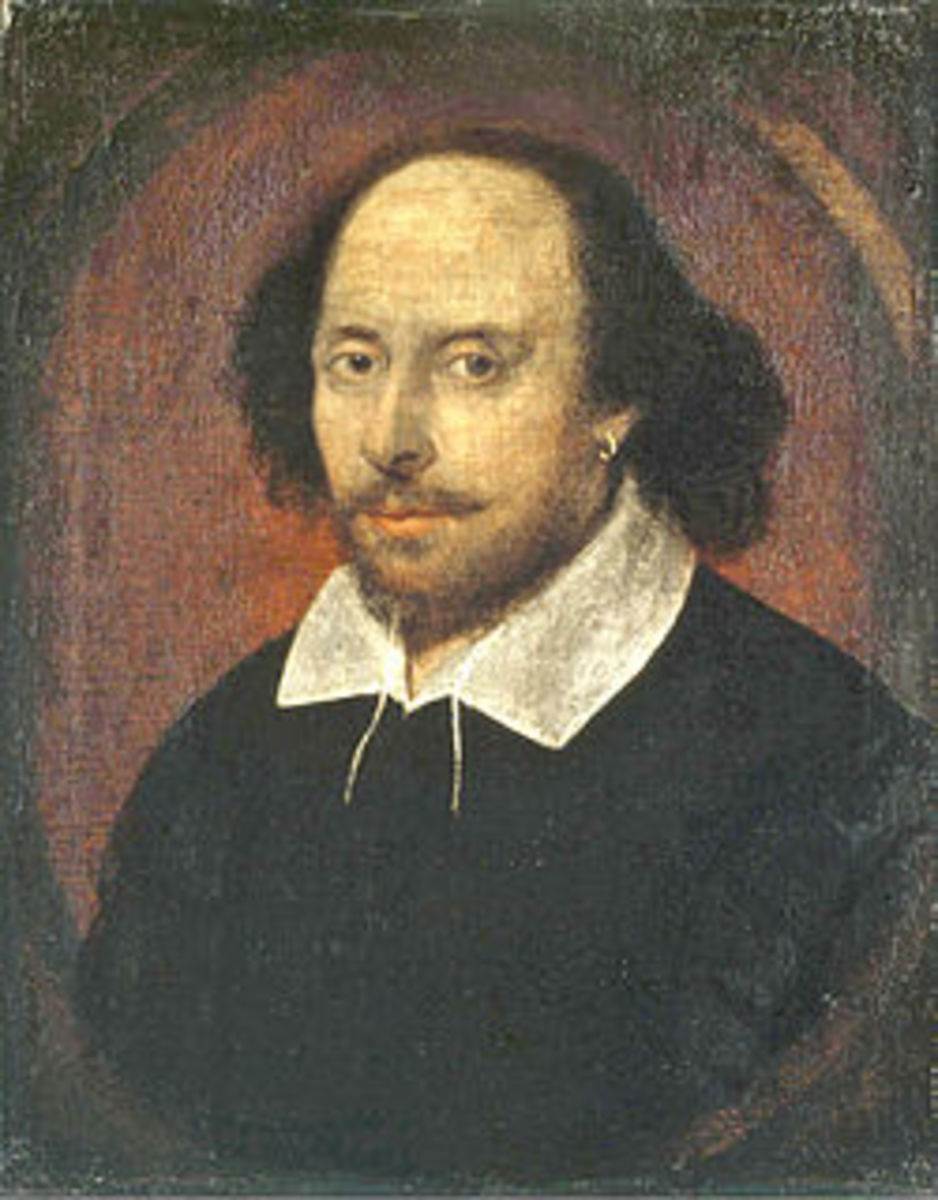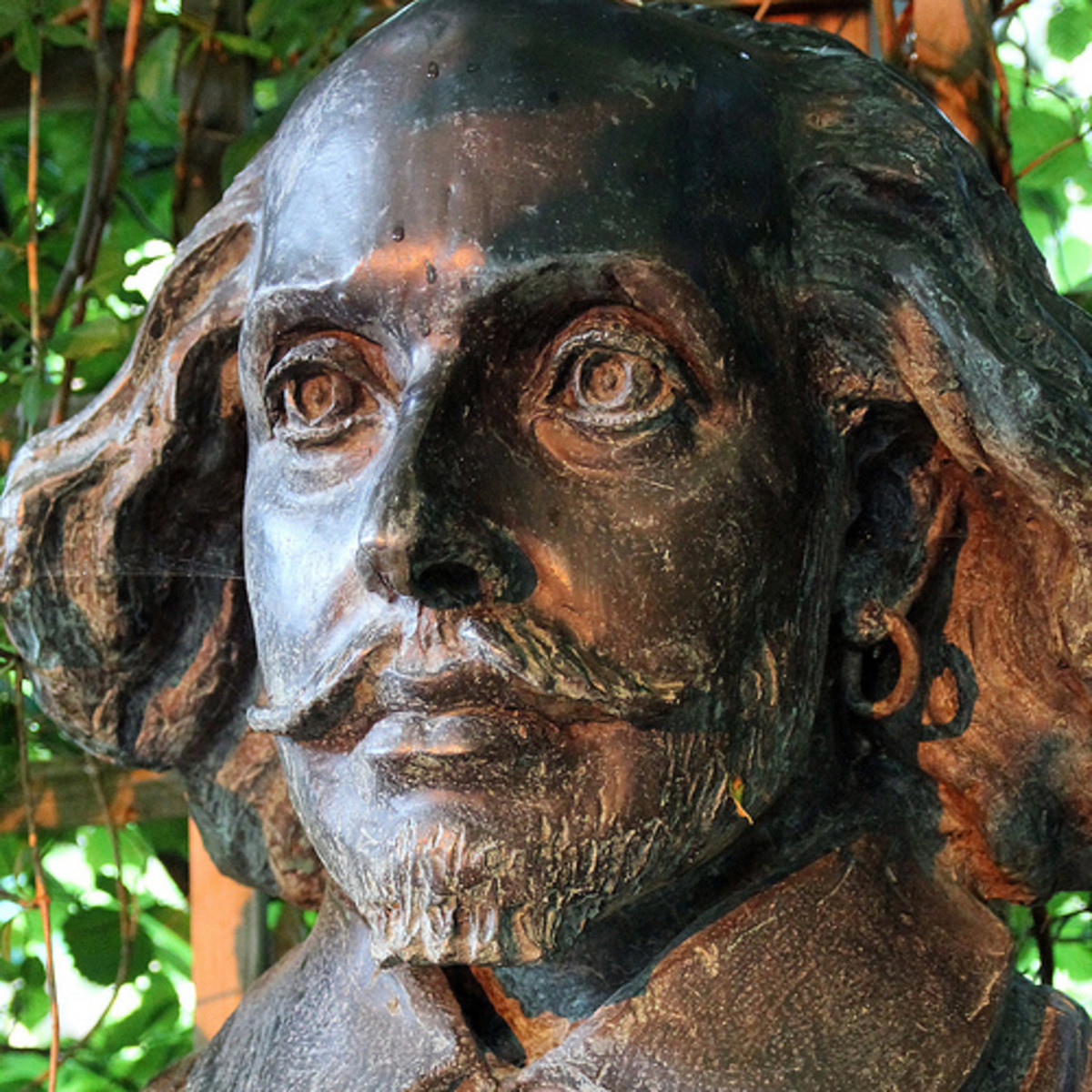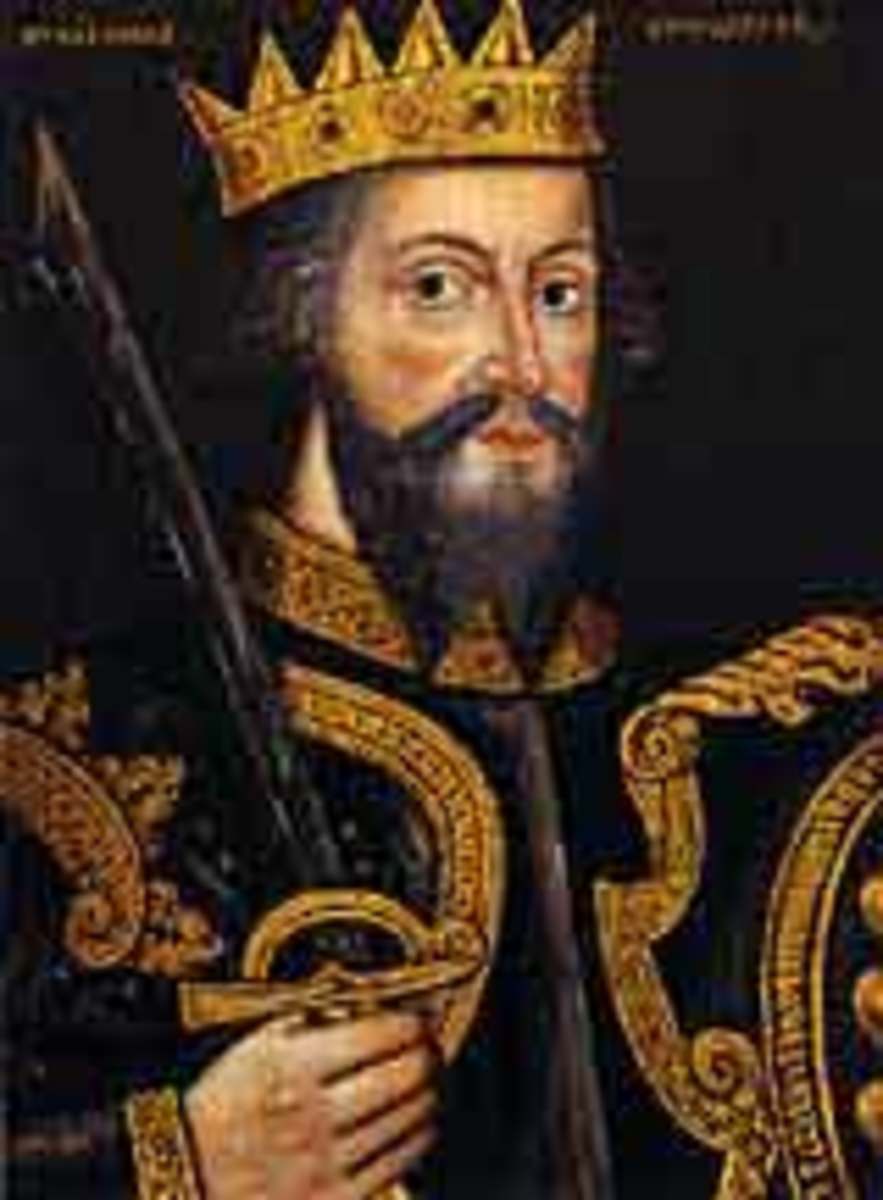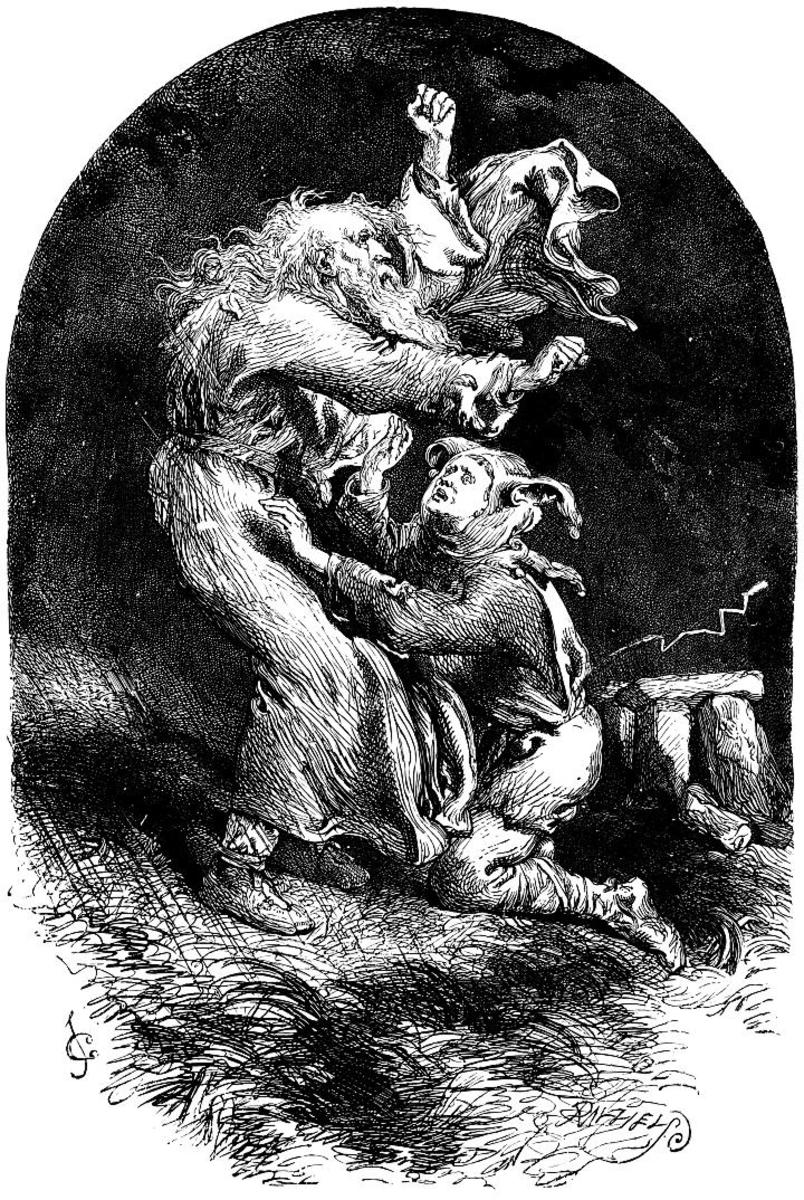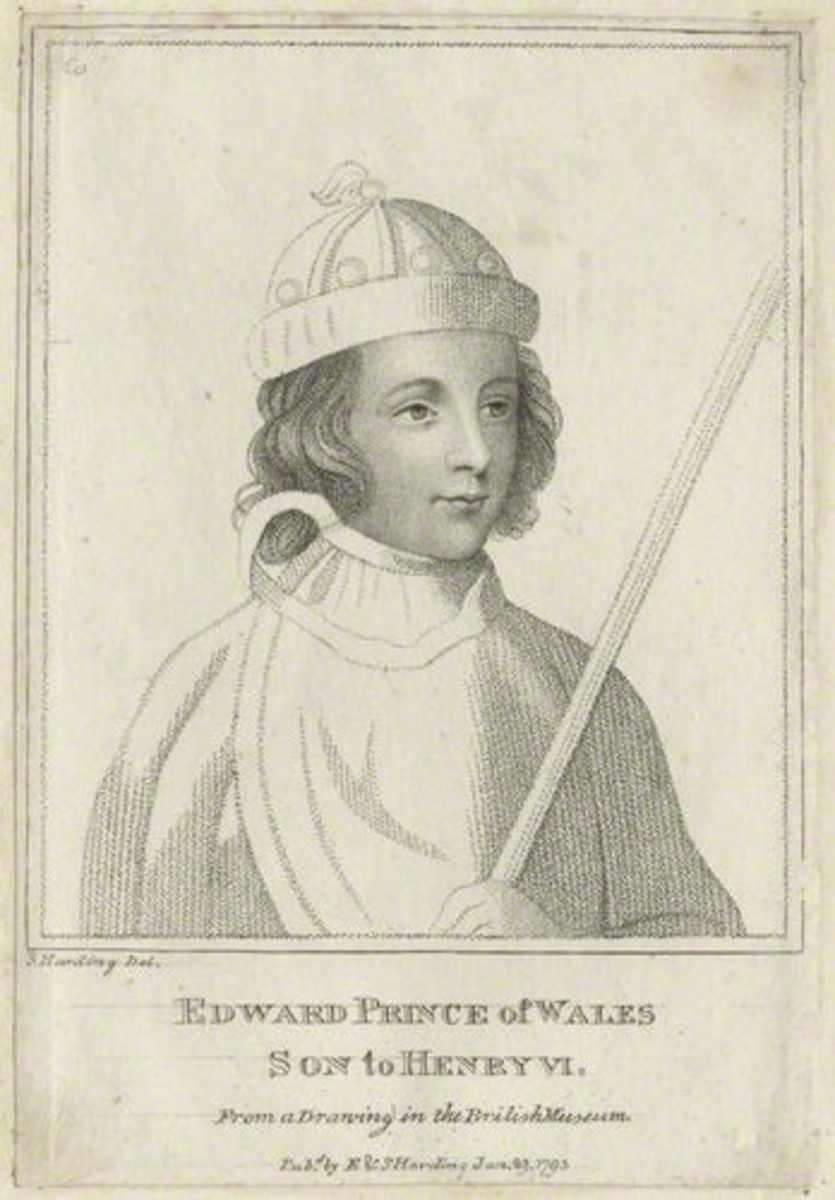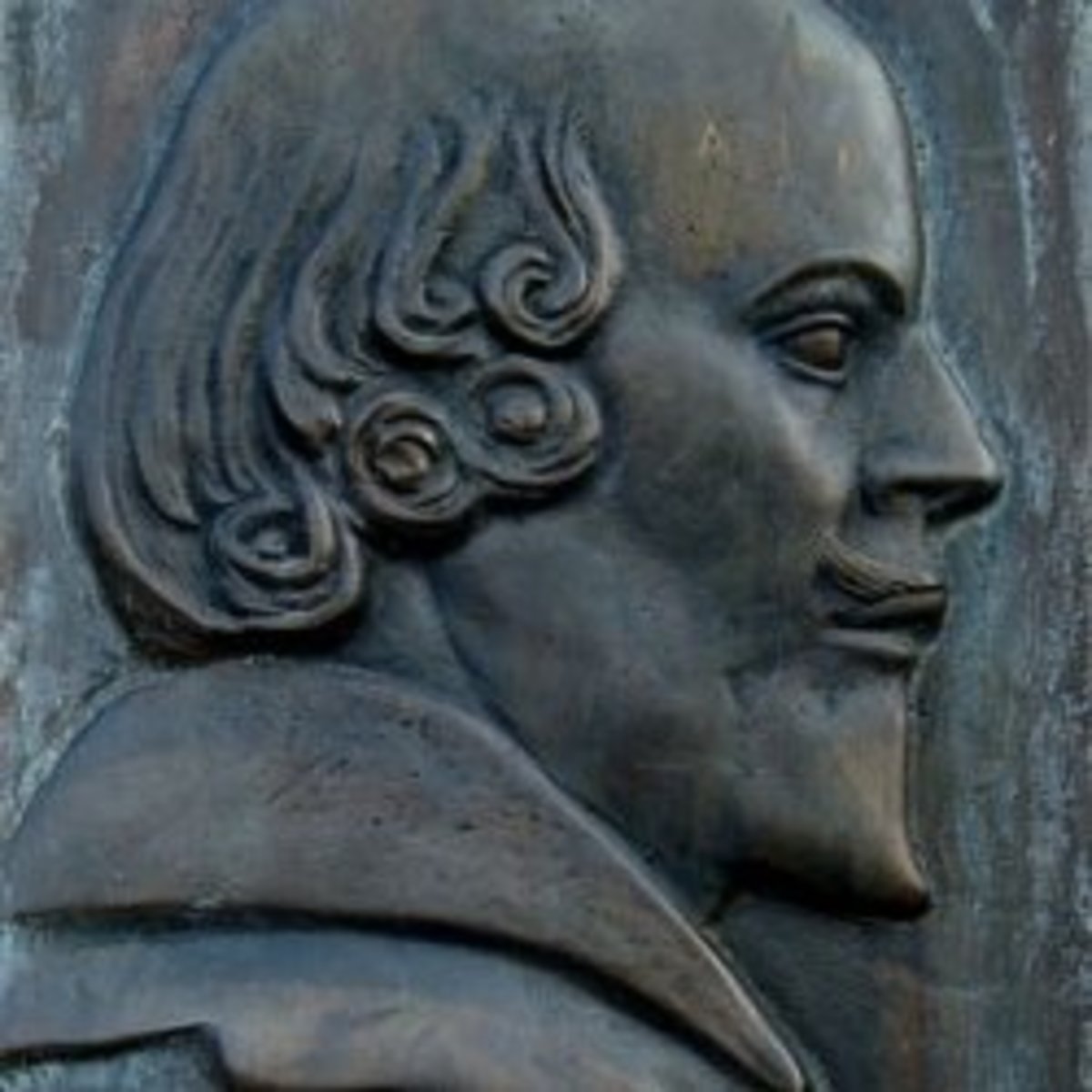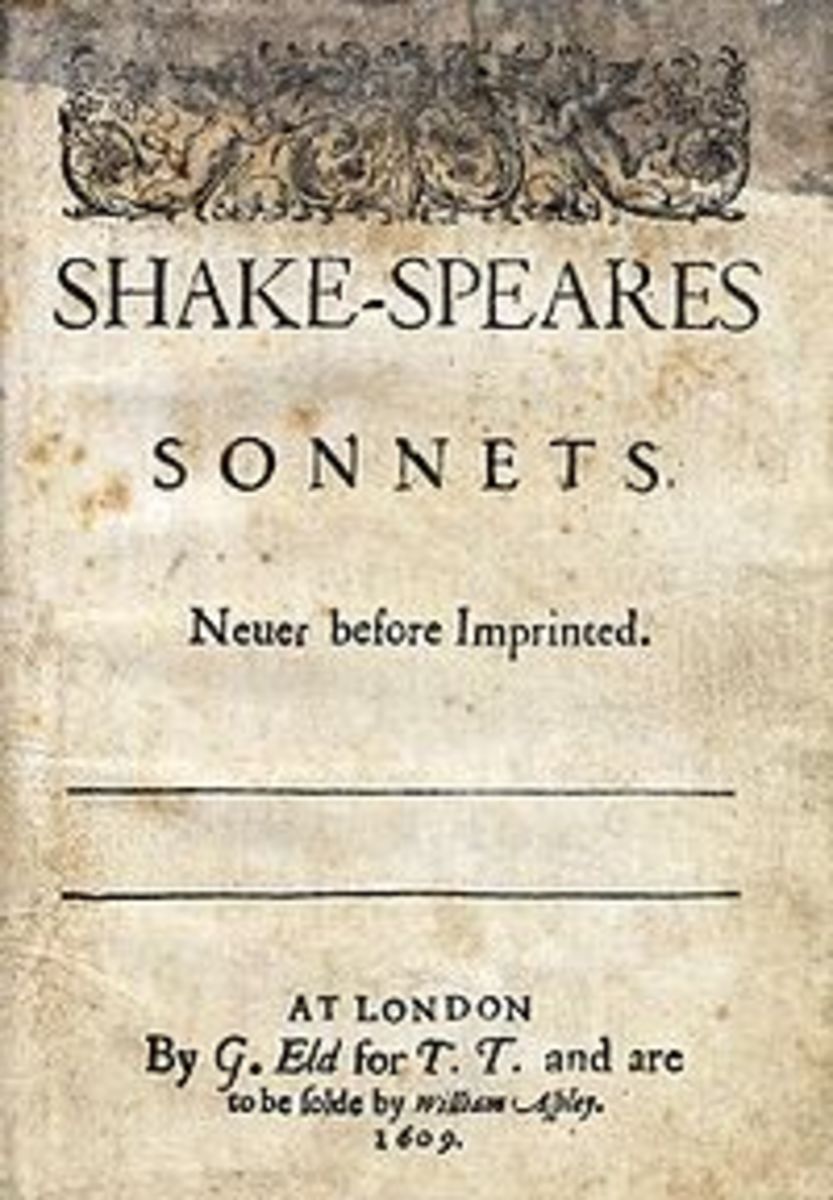- HubPages»
- Books, Literature, and Writing»
- Literature»
- English Literature
Hamlet, To Be King or Not to Be King
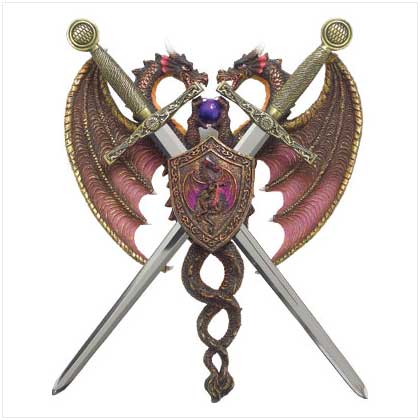
William Shakespeare lived during the reign of Elizabeth I at the end of the England’s most exciting ruling dynasty, the Tudors. Jennifer Young writes, “The Tudor period overflowed with huge characters ... It saw momentous events... Rulers were seldom secure: conspirators plotted against the crown; executions were common... Yet it was a time of chivalry, flattery and great literature.” (“Tudor History”) They are the best known of all the British ruling families, and has inspired many works of art since. Two of Shakespeare’s historical plays, Richard III and Henry VIII, deal with events significant in the Tudors’ history.
One of his most popular plays, Hamlet, The Prince of Denmark, has Prince Hamlet, rightful heir to the throne, making no attempt to claim it from his uncle, Claudius. The histories of European monarchies are filled with tales of warring families with tentative claims to a throne engaging in bloody power grabs. Shakespeare’s own home country was no stranger to this form of transition of leadership. Yet Prince Hamlet has as solid claim to the throne of Denmark, has his uncle usurp him, and he makes no move to unseat him. Knowing what we do from the history at the time, it stands that Hamlet had no interest in becoming King of Denmark at the time of his father’s death.
Tudor Rose

The House of Tudor took the throne of England by force, as the victors of the War of the Roses, and were not opposed to using the same toward anyone that posed a threat to the potential legitimacy to the crown. There is no storage of instances where they did so.
Edmund de la Pole, 3rd Duke of Suffolk, of York lineage and nephew of Richard III, had a potential claim to the throne as his brother was named the heir. He inherited the title of earl, as Henry VII reduced the family title. He remained in good standing with the king, even receiving the honor of the Most Noble Order of the Garter in 1496. Yet six years later he took up the former family title of duke, left England, and established as Yorkist claimant. He was imprisoned by Henry VII when he conspired to set up a claim to the throne. Per an agreement with Maximilian I, Holy Roman Emperor, Henry VII promised that he would remained unharmed. He remained imprisoned until Henry VIII came to power and, in accordance with his father’s will, had him executed him with no trial. (The Oxford Companion to British History)
After the death of Edward VI, Jane Grey was reluctantly placed on the throne, for nine days, in accordance Edward’s will, though this was against the final will of Henry VIII and the Third Succession Act of 1544. Once the legal monarch, Mary I took her throne on July 19, 1553, she had Lady Jane imprisoned. Though Jane was initially spared from a death sentence, Mary I reversed it and ordered her execution after the unsuccessful Protestant rebellion of Thomas Wyatt the Younger. This was to quell any further threats, though Jane had no involvement in it. (The Columbia Encyclopedia)
Elizabeth I’s reign was threatened by a number of plots between the Catholics, the Duke of Norfolk and Mary Queen of Scots. Elizabeth believed very much in the divine nature of a monarch, and resisted any pressure by her privy council and parliament to execute her cousin. There was also concern what Scotland’s current ruler and Mary’s son, James VI would do in response. She got over her reluctance when letters surfaced that implicated Mary in a plot of assassinate her long enough to sign the order for Mary’s execution. (Encyclopedia of World Biography)
William Shakespeare

When we first meet Prince Hamlet in Act I, scene 2, he’s in mourning, and delivers the soliloquy, “O, that this too too sullied flesh would melt…,” (I.2.129-158) the first of three soliloquies when Hamlet reveals his thoughts of suicide. Here is a young man brought home from schooling abroad for the funeral of his beloved father and the sudden remarriage of his mother. He is bewildered, disheartened and contemplating ending his life. He also compares his father to the Hyperion (I.2.140) while he says of his uncle and himself,
My father’s brother, but no more like my father
Than I to Hercules…. (I.2.152-153)
Here he states the inferior nature of his uncle, while at the same time seeming to dismiss himself of not even being worthy of his father’s station. Amanda Mabillard observes, “Although those around him can and do act upon their thoughts, Hamlet is stifled by his consuming insecurities.” (“Introduction to Hamlet”) These are not the thoughts and feelings of one who wishes to claim his birthright.
Claudius is well aware the people have a great love for Hamlet. With that support, Hamlet could sway the high-ranking electors to revote in his favor. He reveals this at the start of Act IV, “He's loved of the distracted multitude,” (IV.3.4) He also admits as much to Laertes.
Why to a public count I might not go.
Is the great love the general gender bear him. (IV. 7. 17-18)
If Hamlet was in the state of mind at the time to see the public support he possessed and the desire to pursue the throne, he quite easily could have railed them to his cause. Alexander Crawford reasons, “…Then followed immediately the election of Claudius as the new king, apparently before Hamlet could reach Denmark. The great popularity of Hamlet and the great love the people bore him…would cause him to think his uncle had tricked him in the matter of the election… The suspected villainy of his father's sudden death caused him great worry. He was not much concerned about losing the crown. “(Hamlet, an ideal prince…)
It is only in the last act that Hamlet even shows he had an interest in the throne.
Does it not, think'st thee, stand me now upon--
He that hath kill'd my king and whored my mother,
Popp'd in between the election and my hopes, (V.2.64-66)
Yet, by this point with all that has transpired, it is no longer something he aspires to. Then, at the end of Act V, as Hamlet is dying and Fortinbras is approaching, he tells Horatio,
But I do prophesy the election lights
On Fortinbras: he has my dying voice; (V.2.340-341)
He endorses the son of the king his father dethroned with no expression of bitterness or regret that he himself never held the throne.
Those who wished to take the crown were not afraid to take action to do so. It was as true in 17th Century England and the Tudors as it was in Shakespeare’s 13th Century Denmark, as demonstrated by King Hamlet, Claudius and Prince Fortinbras. It was his right from birth, and he had the love and support of the people of Denmark behind him. Hamlet’s dilemma could have been easily solved by simply taking action to claim was rightfully his. One can only conclude when the play begins, the Kingship is not what he desires.
Works Cited
Cannon, John. "Pole, Edmund de la, 3rd duke of Suffolk." The Oxford Companion to British History. 2002. Encyclopedia.com. Web. 20 Apr. 2012
Crawford, Alexander W. Hamlet, an ideal prince, and other essays in Shakesperean interpretation: Hamlet; Merchant of Venice; Othello; King Lear. Boston R.G. Badger, 1916. Shakespeare Online. 20 Aug. 2009. Web.20 Apr. 2012
"Lady Jane Grey." The Columbia Encyclopedia, 6th ed. 2011. Encyclopedia.com. Web. 20 Apr. 2012
Mabillard, Amanda. “Introduction to Hamlet”. Shakespeare Online. 20 Aug. 2000. Web. 20 Apr. 2012
"Mary Queen of Scots." Encyclopedia of World Biography. 2004.Encyclopedia.com. Web. 20 Apr. 2012
Shakespeare, William. “Hamlet, the Prince of Denmark” Literature: A Portable Anthology. Second Edition. Ed. Janet E. Gardner, et al. Boston: Bedford/St. Martin’s, 2009. 777-898. Print
Young, Jennifer. “Tutor History.” UK/Irish History @ Suite 101. Suite 101. n.d. Web. 20 April 2012.
© 2017 Kristen Willms


